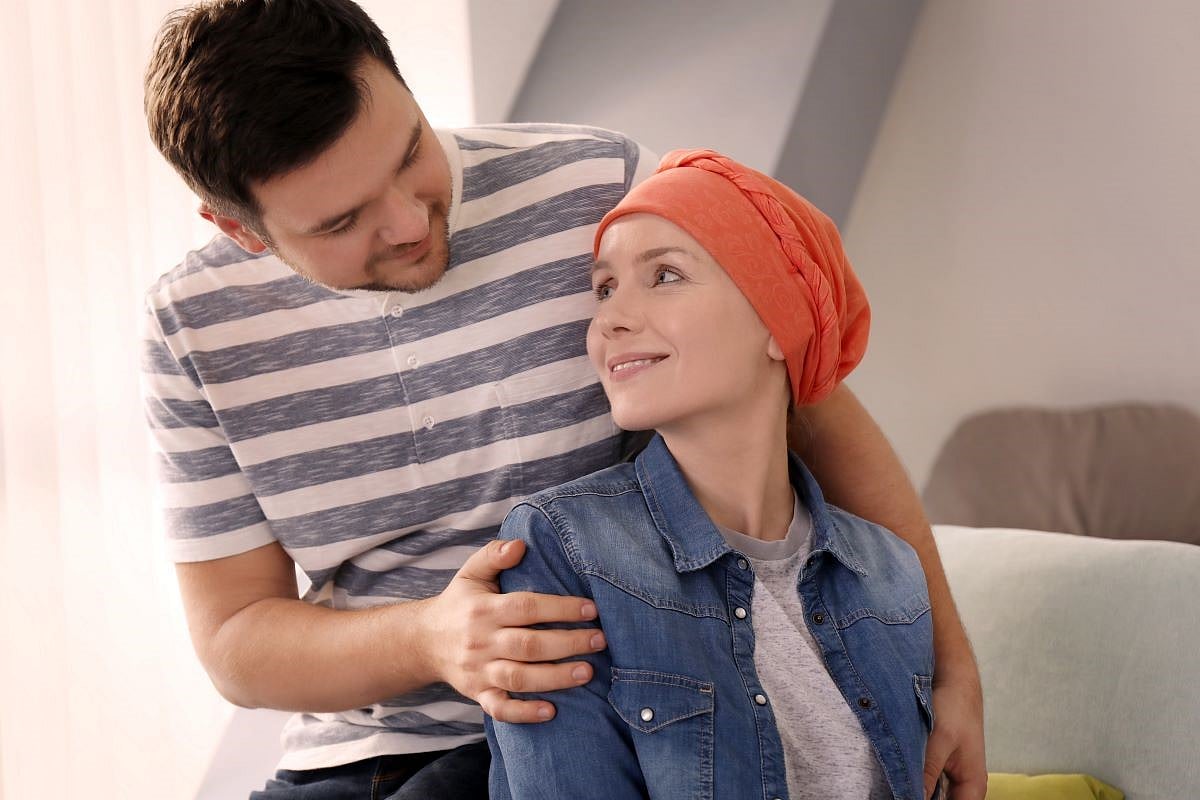Manténgase sano!

- Dennis Thompson
- Posted May 2, 2025
Your Loving Partner Can Protect You From Chemo Brain
A cancer patient’s bond with their partner can be a key factor in helping them ward off chemotherapy-related “brain fog,” a new study says
Patients in a satisfying intimate relationship were more likely to resist chemo brain, the cognitive impairment that can occur during or after chemotherapy treatment, researchers report.
Couples therapy aimed at enhancing a patient’s relationship quality might help folks better handle chemo’s effects on thinking and memory, researchers concluded.
“Before this study, we didn’t understand that bolstering the intimate partnership before the patient undergoes chemo might attenuate their cognitive side effects,” senior researcher Leah Pyter, director of the Institute for Behavioral Medicine Research at Ohio State University, said in a news release.
For the study, researchers tracked 48 breast cancer patients participating in a study examining links between chemo and disruptions of the gut microbiome and brain function.
The patients all completed tests assessing verbal skills, attention levels and short-term memory. They also completed questionnaires reporting changes to their concentration, memory, word retrieval and mental clarity.
“It was nice to be able to test these patients before they had chemo and then again after, because people can be affected by chemo and still be within normal ranges – but for them, it’s not normal,” Pyter said.
Researchers also asked patients to assess their relationship satisfaction with their partners, as well as the social support they received from friends and family during chemo.
The upshot: The more satisfied patients were in their relationship, the more protected they were from declines in brain function while receiving chemo.
“There was less decline in cognitive function for those who had a good amount of social support, but there were more associations and more enduring associations between protected cognition and the highly satisfying relationship than just with general social support,” Pyter said. “We interpreted that as an indication that the most important social relationship is that intimate partnership.”
The study also found that so-called “love hormone,” oxytocin, is affected by chemotherapy.
Specifically, blood levels of oxytocin decreased significantly during chemo, but returned to normal levels following treatment, researchers said. This suggests that chemo could be affecting the hypothalamus, the brain region where oxytocin is made.
“Oxytocin is well-known to play roles in social interactions and has been called the ‘love’ hormone, but it does so many other things,” lead researcher Melina Seng, a senior research technician in Pyter’s lab, said in a news release.
“To our knowledge, no one has ever studied oxytocin and chemotherapy before, so the fact that we saw a very strong decrease in oxytocin from pre-chemotherapy to during chemotherapy is very interesting and is something that should be investigated further,” Seng added.
Overall, the results suggest that couples therapy could be as important as other support groups for people going through cancer treatment, researchers said.
“There’s group therapy for chemo patients, which is social support, and this study would suggest that while that therapy might be beneficial, marital or partner therapy used in other medical contexts to improve the quality of the relationship might also be a good approach for patients receiving chemo,” Pyter said.
The new study appears in the June issue of the journal Psychoneuroendocrinology.
More information
The Mayo Clinic has more on chemo brain.
SOURCE: Ohio State University, news release, April 29, 2025
